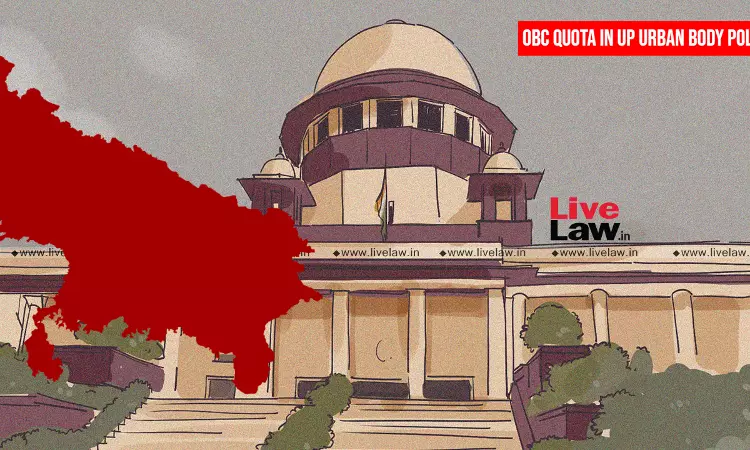Supreme Court Allows Local Body Elections In Uttar Pradesh With OBC Quota
Padmakshi Sharma
28 March 2023 2:13 PM IST

Next Story
28 March 2023 2:13 PM IST
The Supreme Court on Monday (March 27) permitted notifications for setting up the election process for the local bodies in the State of Uttar Pradesh with OBC quota within two days. It allowed the State Election Commission to issue a notification in this regard in two days with an OBC quota in terms of a report of the Uttar Pradesh Backward Classes Commission.A a bench comprising CJI...
